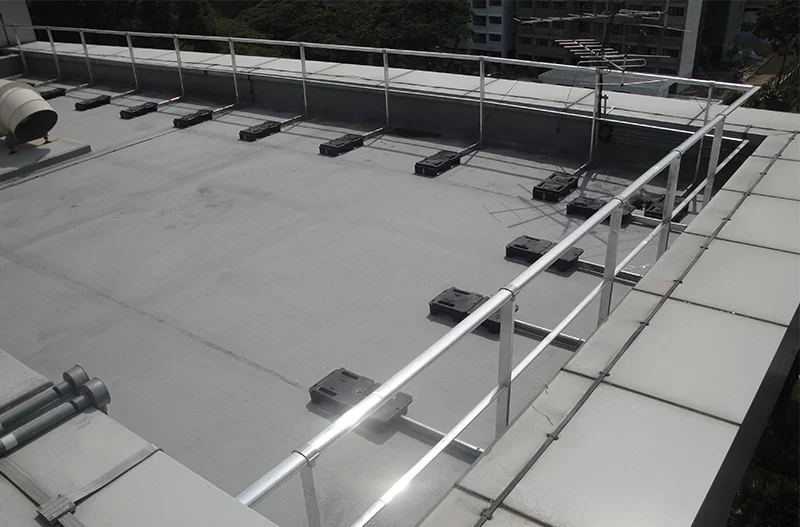What Is a Phone Sales Closer and Why Are They in Demand?
A phone sales closer is a sales professional whose main responsibility is to convert warm or qualified leads into paying customers over the phone. Unlike traditional sales reps who may be involved in the entire sales cycle, phone closers focus specifically on the final stage—closing the deal. They’re experts at navigating conversations, uncovering objections, and leading prospects to a confident “yes.” In today’s fast-paced, remote-friendly world, companies are actively hiring skilled phone closers to shorten sales cycles and boost revenue without needing face-to-face meetings. The surge in digital businesses, online education, and remote services has made phone-based sales a cornerstone of modern commerce. Businesses want closers who can make high-converting calls while being efficient, personable, and results-driven. That demand has elevated the phone sales closer role from a nice-to-have to an essential piece of many revenue teams.
The Skills That Make a Powerful Phone Sales Closer Unstoppable
Mastering the art of phone closing goes far beyond reading from a script. Top-performing phone sales closers develop a range of interpersonal and psychological skills that help them lead conversations with clarity and influence. Building quick rapport is crucial—people buy from those they like and trust. That starts with confident tonality, authentic interest in the prospect’s needs, and mirroring language patterns. Active listening is another critical ability that separates amateurs from closers; it means listening with the intent to understand, not just to respond. Objection handling is the heart of the closing process, requiring a calm, confident presence and a toolbox of persuasive responses. Closers also use verbal frameworks like trial closes, urgency statements, and assumptive language to guide the sale naturally. Emotional intelligence plays a major role—being able to read vocal cues, manage one’s emotions under pressure, and adapt to the prospect’s mood in real-time. A phone sales closer who sharpens these abilities will consistently outperform those relying on pushy tactics or rigid scripts.
Tools and Tech Every Phone Sales Closer Needs to Succeed
To perform at peak levels, a phone sales closer must be armed with the right tech stack. First, a reliable CRM (Customer Relationship Management) system is key—it helps organize leads, track interactions, and schedule follow-ups efficiently. Tools like Salesforce, HubSpot, and Close.com are common favorites. Power dialers and auto-dialing tools like Aircall or Mojo Dialer can dramatically increase productivity by reducing downtime between calls. Call recording software is another must-have, allowing closers to review their calls, identify areas for improvement, and receive coaching. Noise-canceling headsets are essential for maintaining professionalism and clarity, especially in remote or busy environments. Some phone closers benefit from call scripting platforms that provide dynamic templates based on the flow of the conversation. However, seasoned closers often prefer frameworks over scripts so they can remain fluid and conversational. Lastly, analytics tools that measure close rates, talk-to-listen ratios, and objection response effectiveness are vital for tracking performance and optimizing results.
Proven Sales Call Frameworks Used by Top Phone Closers
Rather than winging it, successful phone sales closers rely on time-tested call structures. A typical high-converting framework might begin with a warm, confident opening that sets the tone and clarifies the purpose of the call. This leads into a discovery phase where the closer asks strategic questions to uncover the prospect’s goals, pain points, and objections. Then comes the value presentation, where the closer connects the solution directly to the prospect’s needs. Rather than giving a generic pitch, top closers tailor every benefit to what the prospect said earlier in the call. The objection-handling phase follows, where the closer calmly addresses concerns using empathy, social proof, or comparison reframes. Trial closes are sprinkled throughout the conversation—questions like “Does that sound like what you’re looking for?” help gauge readiness. Finally, the closer confidently asks for the sale using assumptive or direct language like “Let’s get you started today.” Mastering these call flows enables consistent performance regardless of the lead’s personality or industry.
How to Train as a Phone Sales Closer (With or Without Experience)
Breaking into the world of phone sales closing doesn’t require a traditional degree, but it does demand serious training and self-discipline. For those without prior experience, enrolling in a phone closing or high-ticket sales training program can be a powerful start. These programs often provide call scripts, roleplaying exercises, and live coaching to build foundational skills. Practicing cold or warm calls with a partner or mentor is another proven way to improve rapidly. Recording and reviewing calls helps identify filler words, tonal mistakes, or missed opportunities. Aspiring closers can also benefit from shadowing professionals or listening to recordings of top performers to learn pacing, objection handling, and transitions. Setting measurable KPIs—like call-to-close ratios, objections overcome, or call durations—keeps growth intentional and focused. With consistent practice, feedback, and mindset conditioning, even beginners can transform into confident and high-performing phone closers.
Phone Sales Closer vs. Inbound and High-Ticket Sales Roles
Many aspiring closers wonder how phone sales differs from other common sales roles. Inbound closers typically deal with leads who’ve expressed interest—through a form or a free consultation—and guide them to a decision. Phone closers often work in both inbound and outbound settings but specialize in finalizing the sale rather than generating leads. High-ticket phone closing refers to selling premium products or services—like coaching, real estate deals, or enterprise software—usually priced between $2,000 and $25,000 or more. This type of closing requires an elevated skill set and emotional control. In contrast, transactional sales roles focus more on volume and less on persuasion. Commission structures also vary—phone closers often operate on high commissions with uncapped earning potential, whereas inbound setters or SDRs (Sales Development Representatives) may have base salaries with performance bonuses. If you’re looking for a role that blends persuasion, performance-based pay, and flexible work options, becoming a phone sales closer is a standout path.
Building a Career as a Remote Phone Sales Closer
With the rise of remote work, more professionals are launching careers as virtual phone closers. Companies around the world now hire remote closers to handle sales from anywhere, as long as they have the skills and discipline to perform. The flexibility is appealing—you can work from home, set your schedule (depending on the client), and work with companies across different time zones. To get started, build a compelling resume that focuses on communication skills, persuasion, and any sales experience. Cold email businesses or apply through platforms like RemoteCloser, Indeed, or LinkedIn to find legitimate opportunities. Freelance marketplaces also list gigs where companies seek closers for specific launches or campaigns. When starting out, it may be beneficial to join a sales agency or training community that connects closers with pre-qualified leads. As you build your reputation, more doors will open for high-ticket opportunities and even team leadership roles.
Daily Habits and Mindset of a Top-Earning Phone Sales Closer
What separates elite phone sales closers from the rest isn’t just talent—it’s habits. Top earners start each day with mindset priming, whether through affirmations, visualization, or reviewing their goals. They warm up their voice, rehearse objections, and set intentions for the number of calls and closes they aim to achieve. Reviewing previous calls and feedback becomes a daily routine to sharpen performance. These closers treat sales like a performance art—focusing on energy, tonality, and pace. They also block time for rest and recovery to maintain focus during peak call hours. Staying motivated despite no-shows or rejections is part of the game, so personal development is often baked into their daily rituals. Whether through books, podcasts, or coaching, top closers are always learning and improving. This dedication to discipline, training, and mindset gives them a consistent edge.
Common Mistakes New Phone Closers Make (And How to Avoid Them)
New phone closers often struggle with avoidable missteps that can hurt their results. One of the most common is talking too much and not listening enough. Sales happen through questions, not monologues. Another mistake is relying too heavily on a script, which can make conversations feel robotic or disconnected. Failing to ask for the sale directly is another frequent issue—some new closers wait for the prospect to volunteer the decision. Not qualifying leads properly can waste valuable time and energy. Others let a single rejection derail their mindset and performance for the day. Lastly, forgetting to follow up or not tracking metrics means they miss opportunities to learn and optimize. The good news? These mistakes are fixable with awareness, coaching, and consistent call reviews.
Real Opportunities: Where to Start as a Phone Sales Closer
Breaking into phone sales closing doesn’t require years of experience—it requires action. Start by researching companies in industries like coaching, digital marketing, SaaS, or e-commerce that often hire closers. Platforms like Upwork, Remote Closing Academy, and LinkedIn can help you connect with hiring managers or find job posts. Reach out with a personalized pitch that shows your communication skills and willingness to learn. Consider offering a trial period to demonstrate results if you lack a strong portfolio. Joining communities or programs that offer job placement and mentorship can fast-track your journey. Whether you’re aiming to freelance, work full-time, or build your own agency, the opportunities are wide open for skilled phone sales closers ready to make an impact.
FAQ: Common Questions About Becoming a Phone Sales Closer
Q1: Do I need experience to get started as a phone sales closer?
No, many closers start with zero experience and learn through training programs, mentorship, and practice. A strong work ethic and willingness to learn matter most.
Q2: What industries are best for phone closing jobs?
Coaching, consulting, SaaS, online courses, health services, and real estate are popular industries that hire phone closers.
Q3: How much do top phone closers earn monthly?
Top closers can earn anywhere from $5,000 to over $20,000 per month, especially in high-ticket environments with uncapped commissions.
Q4: Can I do this part-time or as a side hustle?
Yes, many closers start part-time before transitioning to full-time once they’ve built experience and consistent commissions.
Q5: How do I overcome fear of cold calling or rejection?
Practice, preparation, and exposure help reduce fear. Listening to successful calls, using scripts as a foundation, and focusing on serving the prospect can also boost confidence.











